Punam Kumar Gill, the pro-choice filmmaker of “Hush: the Documentary,”claims that she was escorted off the property of the National Cancer Institute (NCI) after inquiring why the government agency has concluded there was no risk of breast cancer from abortion. Gill sought interviews with several medical organizations, including the NCI, after learning that medical experts had investigated the link associated with an increased risk of breast cancer from abortion and concluded that the risk did not exist.
After contacting The National Cancer Institute and being denied an on-camera interview, Gill — who admitted to initially being skeptical of pro-life research on the link between abortion and breast cancer — also began to feel “equally suspicious” of those “denying any link.”
Gill contacted the NCI as well as the Royal College of Obstetricians and Gynecologists, the Canadian Cancer Society, and the American College of Obstetricians and Gynecologists, and found that none were willing to discuss their findings on camera. “I tried to interview each of these organizations. I wanted to get their position on the abortion breast cancer link to ask them about these studies and the process of determining that there was no link,” Gill states in the documentary. “But, from everyone, I was denied an interview. They simply said that the case was closed. That they had no one available to speak about the subject. And anything that I needed to know could be found on their website.”
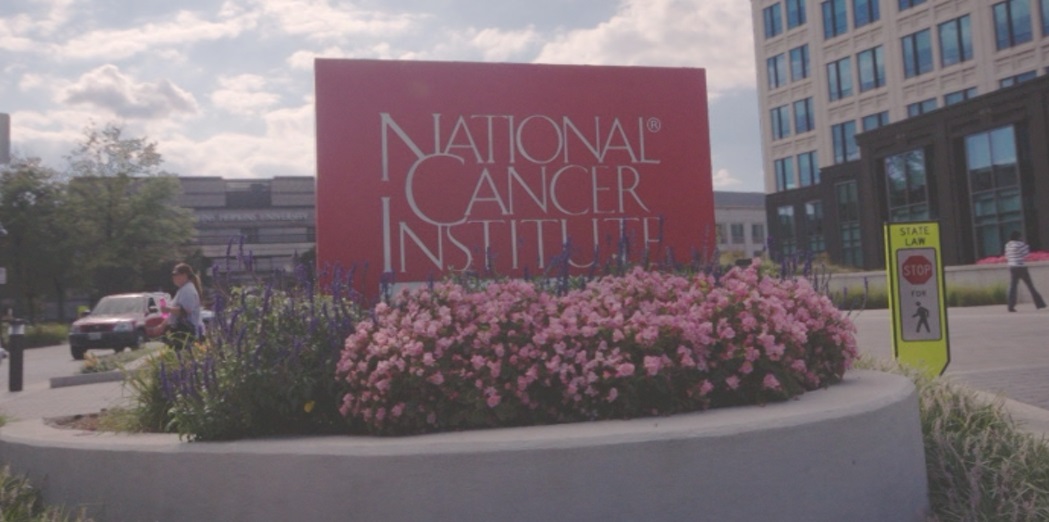
National Cancer Institute (screenshot: “Hush: the Documentary”)
“I felt that I was digging into something much deeper and darker,” she states. “If the jury was in, why wouldn’t they stand behind their findings and speak to me?”
Gill said that the next step she took was to “follow their suggestions” and visit their websites.
“Each one referred to a 2003 conference put on by the National Health Institute’s Cancer Division, the NCI, where it was concluded once and for all that there was no link between abortion and breast cancer.”
“Clearly, I needed to talk to the NCI,” Gill said.
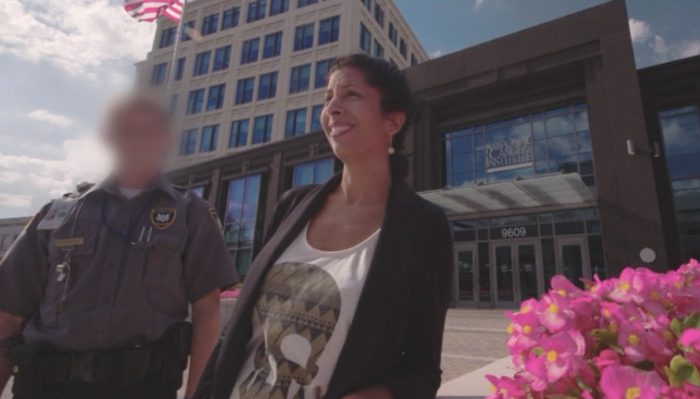
Pro-choice filmmaker escorted off grounds of National Cancer Institute (screenshot: “Hush: the Documentary”)
“But not only did they deny me an interview, when I tried to visit the National Cancer Institute in person, I quickly got escorted off the grounds.”
Gill found this response strange. While pro-life researchers had openly discussed their findings on the abortion-breast cancer link, the main agency that had concluded there was no link had refused an interview?
“But who was I supposed to trust?” Gill asked. “A handful of pro-life scientists or the health care organizations being dismissive and patronizing?… What was going on here? It was like they really didn’t want any questions being asked.”
Gill began to ask, “What happened at the 2003 NCI conference, that they were able to come out with such a broad, sweeping statement as to say that there is absolutely no risk and no connection with either abortion or miscarriage?”
To get to the bottom of why the NCI was so secretive, Gill tracked down a video recording of the 2003 NCI where the findings were debated, available online.
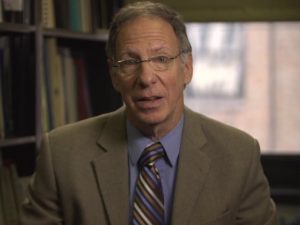
Dr Joel Brind (screenshot: “Hush: the Documentary”)
She then spoke with Dr. Joel Brind, an expert on the topic of abortion and breast cancer. Although Dr. Brind had published an extensive study showing a link between abortion and breast cancer, he was not invited to present at the NCI’s 2003 workshop.
He told Gill that right before the conference took place, the NCI’s website was inconclusive about any link.
But when the organization installed a new director, Andrew C. von Eschenbach, M.D., the statements from NCI went from “being very equivocal to being close to being certain that there is no link,” Brind said.
Gill reviewed archived video of the conference and discovered that even though the experts at the conference were there to review data regarding the risks associated with abortion, the NCI’s director indicated that the discussion would not be about the abortion-breast cancer link.
“Despite the assertion that 100 experts decided the case was closed on the abortion-breast cancer link,” Gill says, “only a small handful of them were scientists who had actually done research directly related to the subject. And only one presented.”
This contradicts what the NCI published on its website about that 2003 event:
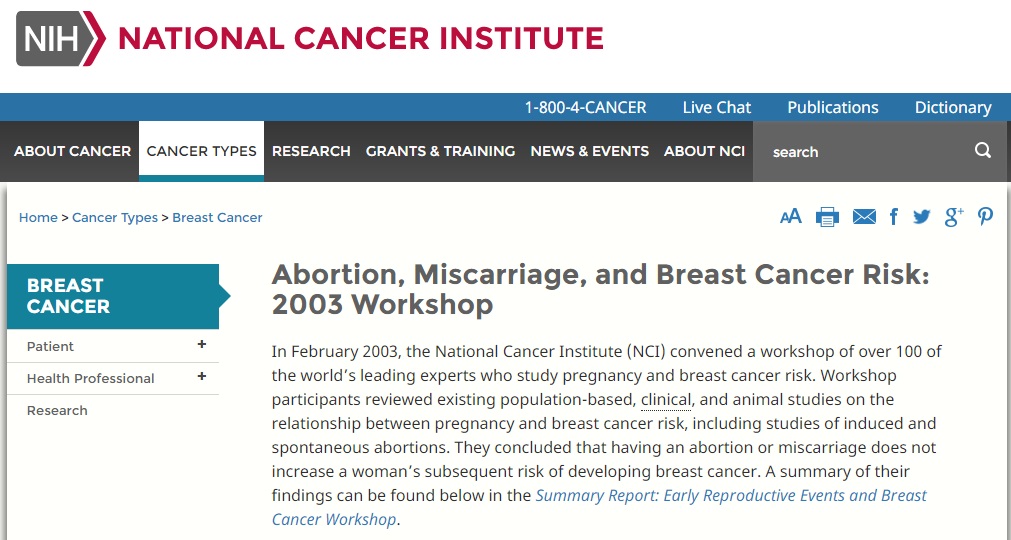
2003 National Cancer Institute NCI abortion breast cancer conference
“I have twenty minutes,” presenter Dr. Leslie Bernstein began on the NCI video, “So, if I start speaking really fast you’ll understand because I’m not sure I can cover it all in twenty minutes.”
Bernstein admitted that she “did not present all the data” but did bring up a study funded by the NCI and conducted by Janet Daling, who attended the workshop but was not invited to present her findings.
Bernstein admitted to attendees, “In this study, no matter how you looked at the data, there was an increase in risk associated with induced abortion of about 50 percent.”
The Daling study, according to Gill’s research, also showed “that women who had abortions at 18 or under have a 150 percent increased risk of breast cancer.”
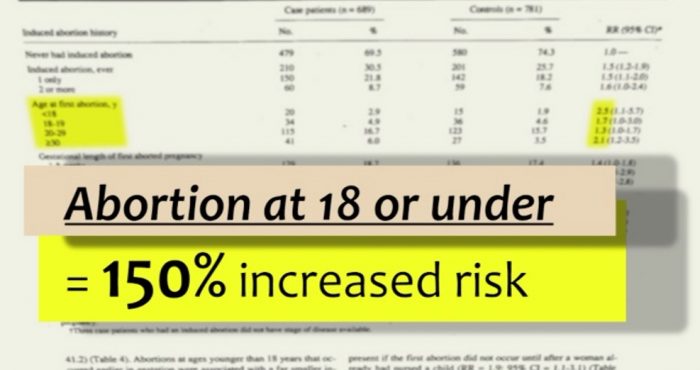
Daling Study on abortion breast cancer under 18 (screenshot: “Hush: the Documentary”)
“And even more telling,” Gill states, “Those women under 18 who had abortions past 9 weeks of pregnancy showed an 800 percent increased risk of breast cancer.”
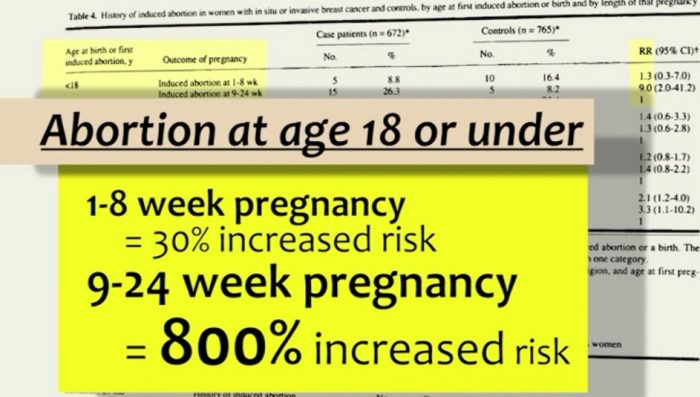
Daling Study on abortion breast cancer under 18 (screenshot: “Hush: the Documentary”)
Instead of taking the Daling study into account, the NCI based its conclusions on a 1997 study conducted by Mads Melbye, which concluded there was no link between abortion and breast cancer — despite the fact that it also indicated there was a breast cancer risk from second trimester abortions.
“The 1997 Melbye Study that’s reported in the popular literature as showing no increase risk of breast cancer [after abortion] actually showed a statistically significant increased risk with abortions occurring in the second trimester,” Dr. Angela Lafranchi, who has researched the topic and is also a breast surgeon, told the filmmaker.
Lafranchi explained that the later in pregnancy (up to 32 weeks) an abortion took place, the greater the breast cancer risk.
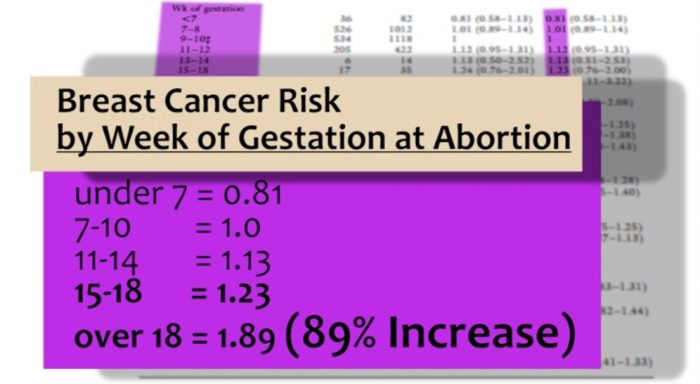
1997 Melbye Study on abortion breast cancer shows increased 2nd trimester risk (screenshot: “Hush: the Documentary”)
To confirm this statistic, Gill reviewed another study, the Ye study, which “claimed to provide truth against the abortion breast cancer link.” But, just as with the Melbye study, Gill found that the Ye study “distinctly shows a greater risk increase depending on how long the pregnancy lasts before the abortion.”
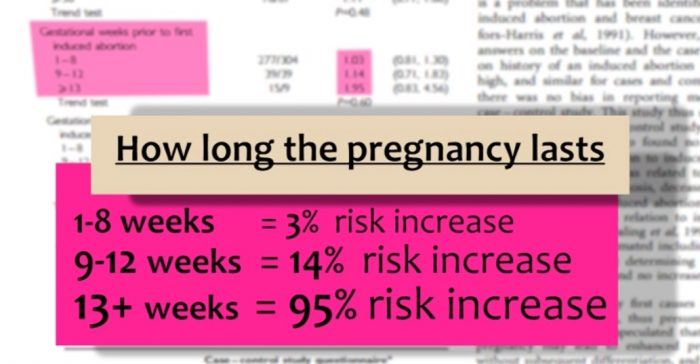
Ye Study on abortion breast cancer shows increased risks depending on how long pregnancy lasts (screenshot: “Hush: the Documentary”)
Although not invited to speak, Dr. Brind attended the 2003 NCI conference and protested the findings during NCI’s Q+A, saying, “I found it rather astonishing with regard to the issue of abortion and breast cancer that there is no association in consideration of the long history of studies — many very good studies, even done by some of the people in this room — which have shown significant positive association.”
Brind, who believes that political pressures about abortion are corrupting research, told Gill that “[…] when it enters into an area that’s politically loaded like abortion, all bets are off.”
The pro-choice filmmaker was shocked with what she discovered about the NCI and concluded that they “came to a final conclusion based on a 20-minute presentation. Then they opened the floor to questions and quickly dismissed the one challenge to the findings.”
“This conference, that according to the director of the NCI was supposed to — in his words — ‘serve as a foundation for further research,’ instead, not only did it close the door to any further research and discussion, but apparently it also eliminated the need to answer questions from documentary makers. And women concerned about their breast cancer risk after an abortion or late term miscarriage.”
You can see clips of the NCI conference as well as additional data connecting abortion with an increased risk of breast cancer in Gill’s documentary, available at Hushfilm.com.







